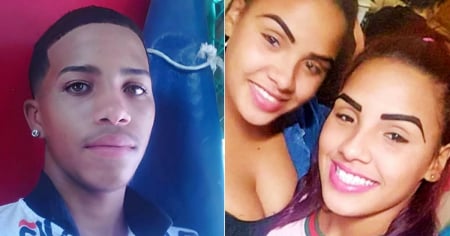The Cuban regime announced the release of 553 incarcerated individuals, under what it describes as “release or parole benefits”, an approach that contrasts with terms like "amnesty" or "pardon," which are commonly associated with gestures of reconciliation or forgiveness.
Despite the promising news, the measure has generated controversy as it does not eliminate the criminal penalties for those convicted and keeps those who receive it under strict supervision.
This was clarified this Wednesday morning by the Vice President of the People's Supreme Court, Maricela Sosa Ravelo, during an exchange with the presenter Humberto López on the program ‘Revista Buenos Días’ of Cuban television.
According to the official, the measure is framed within the Criminal Enforcement Law of Cuba and responds to humanitarian and social reintegration criteria established in the current legislation, which authorities in the island “usually” take into account.
Key differences: Neither amnesty nor pardon
Sosa Ravelo explained that, unlike amnesty and pardons, the "benefit of early release" does not eliminate the criminal sanction.
In the case of amnesty, the extinguishment of the penalty is absolute and is granted by decision of the National Assembly of People's Power. The pardon, on the other hand, is a prerogative of the President of the Republic, following a request to the National Assembly. In both cases, the beneficiaries are released from any criminal obligations or supervision.
On the contrary, early release entails continuous monitoring by the court and other entities such as the police and prevention groups. If those released do not meet the established requirements, they can be sent back to prison to serve the remainder of their sentences.
Requirements and progressive application
The announced measure responds, according to Sosa Ravelo, to a "humanitarian and reintegration policy" that allows sanctioned individuals who meet certain criteria to access penitentiary benefits.
These criteria include good behavior, social reintegration, and, in some cases, health conditions or advanced age.
For example, sanctioned individuals under the age of 20 can be evaluated for the benefit after serving one-third of their sentence. In the case of first-time female offenders (non-recidivists), the same criteria apply. Those with criminal records or recidivism must serve at least two-thirds of their sentence before being considered.
Furthermore, the vice president emphasized that this practice is common in the Cuban judicial system, although this time it has gained notoriety due to the number of beneficiaries and the international media attention it has generated, especially given the context of relations between Cuba and the Pope Francis, who is said to have been informed of this measure.
At no point did either the presenter or the justice official refer to the Biden administration's decision to remove Cuba from the list of state sponsors of terrorism, a measure that many analysts view as part of a triangular negotiation involving Havana, Washington, and the Vatican.
Political prisoners or common criminals?
The official statement avoided referring to those benefited as political prisoners, a category that the Cuban regime rejects.
According to Sosa Ravelo, those released were sanctioned for offenses such as theft, robbery with violence, public disorder, assault, and, in some cases, sedition. He asserted that the latter is not a political crime, but rather an attack against the constitutional order of the country.
International organizations such as Amnesty International and human rights groups have criticized this stance, arguing that sedition has been used to persecute opponents and peaceful protesters.
In this regard, they believe that the release should be extended to all political prisoners, including those incarcerated following the protests of July 11, 2021, and other recent events.
A practice under scrutiny
The measure has been met with skepticism both inside and outside of Cuba.
While the regime presents it as an act of humanity and legality, critics denounce it as a political propaganda move, especially following the recent removal of Cuba from the list of state sponsors of terrorism by the United States and the partial easing of some sanctions.
The process of release will also be gradual. According to the Vice President of the Supreme People's Court, each case must be individually assessed by a collegiate tribunal, based on reports from penitentiary authorities, prosecutors, and other entities.
International context
This massive release is taking place at a time of increasing international pressure on the Cuban regime to improve its human rights record. The recent decision by the United States to ease sanctions and the exclusion of Cuba from international blacklists have raised expectations for deeper reforms.
For its part, organizations such as Amnesty International insist on the unconditional release of all political prisoners on the island, considering that any measure that does not lift the sentences or guarantee full rights to those released is insufficient.
With this announcement, the Cuban regime aims to project an image of openness and dialogue, although doubts remain about the true intention and scope of these measures in a country where control and repression continue to be fundamental pillars of the political system.
Filed under:
